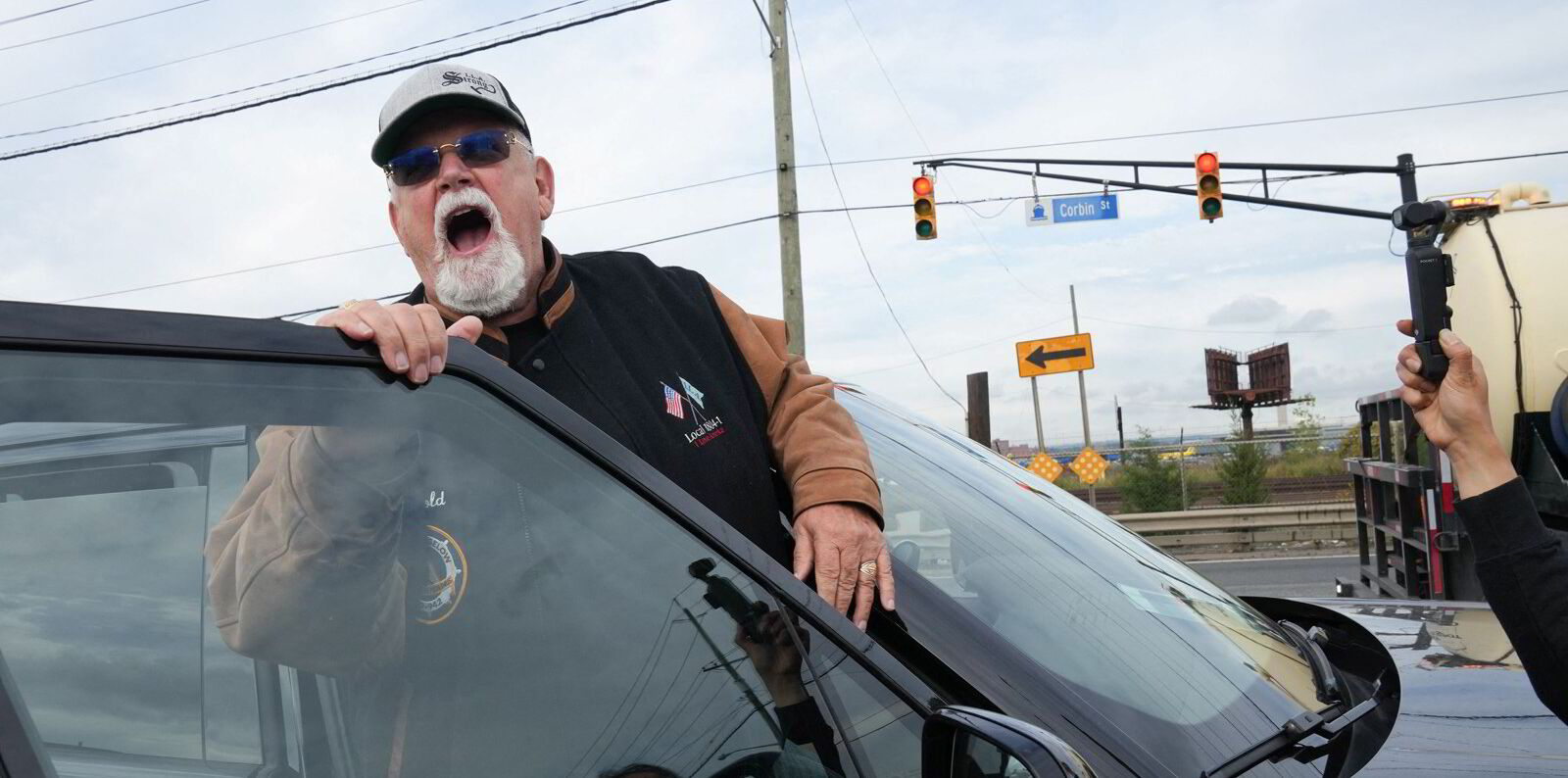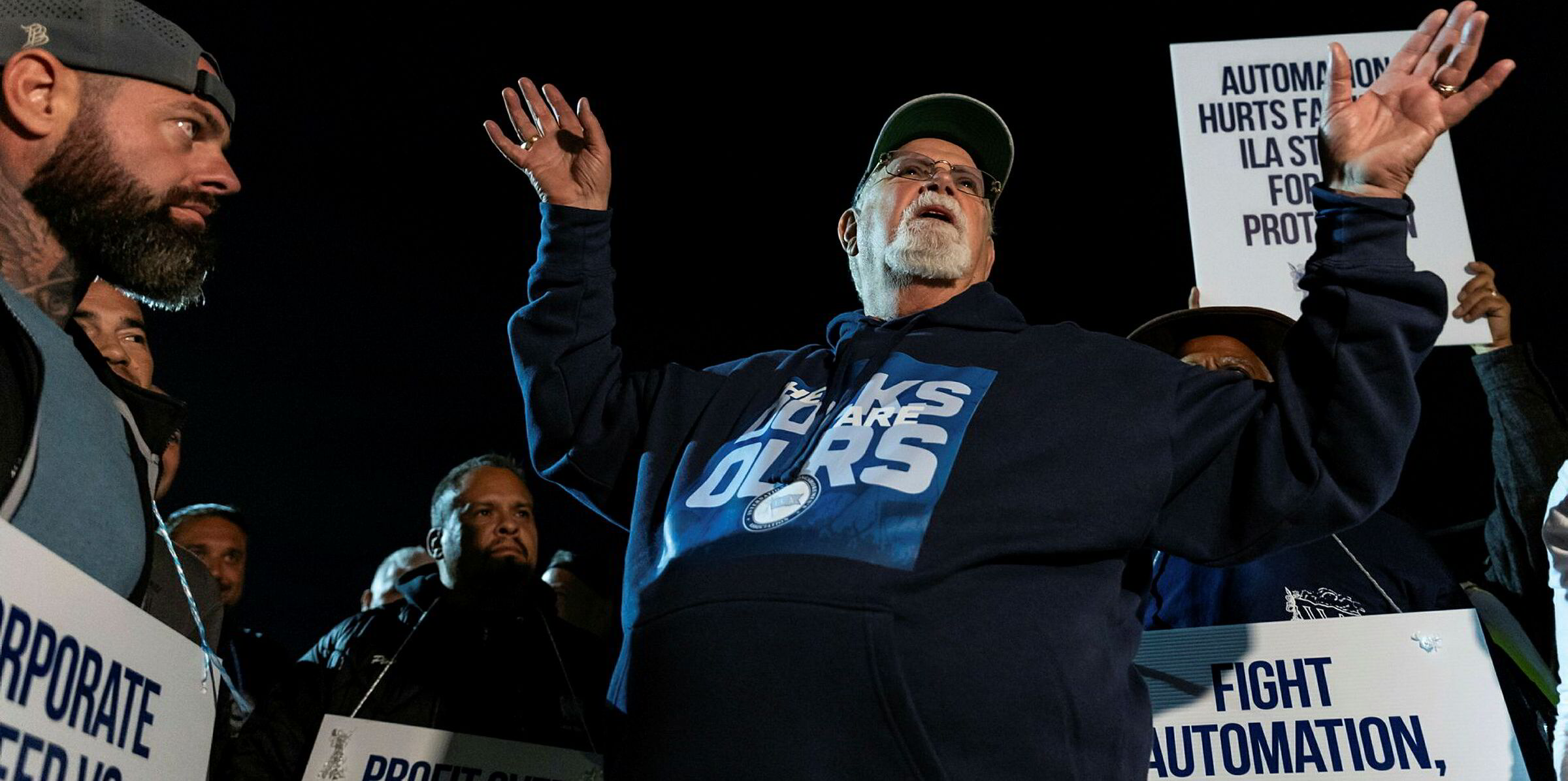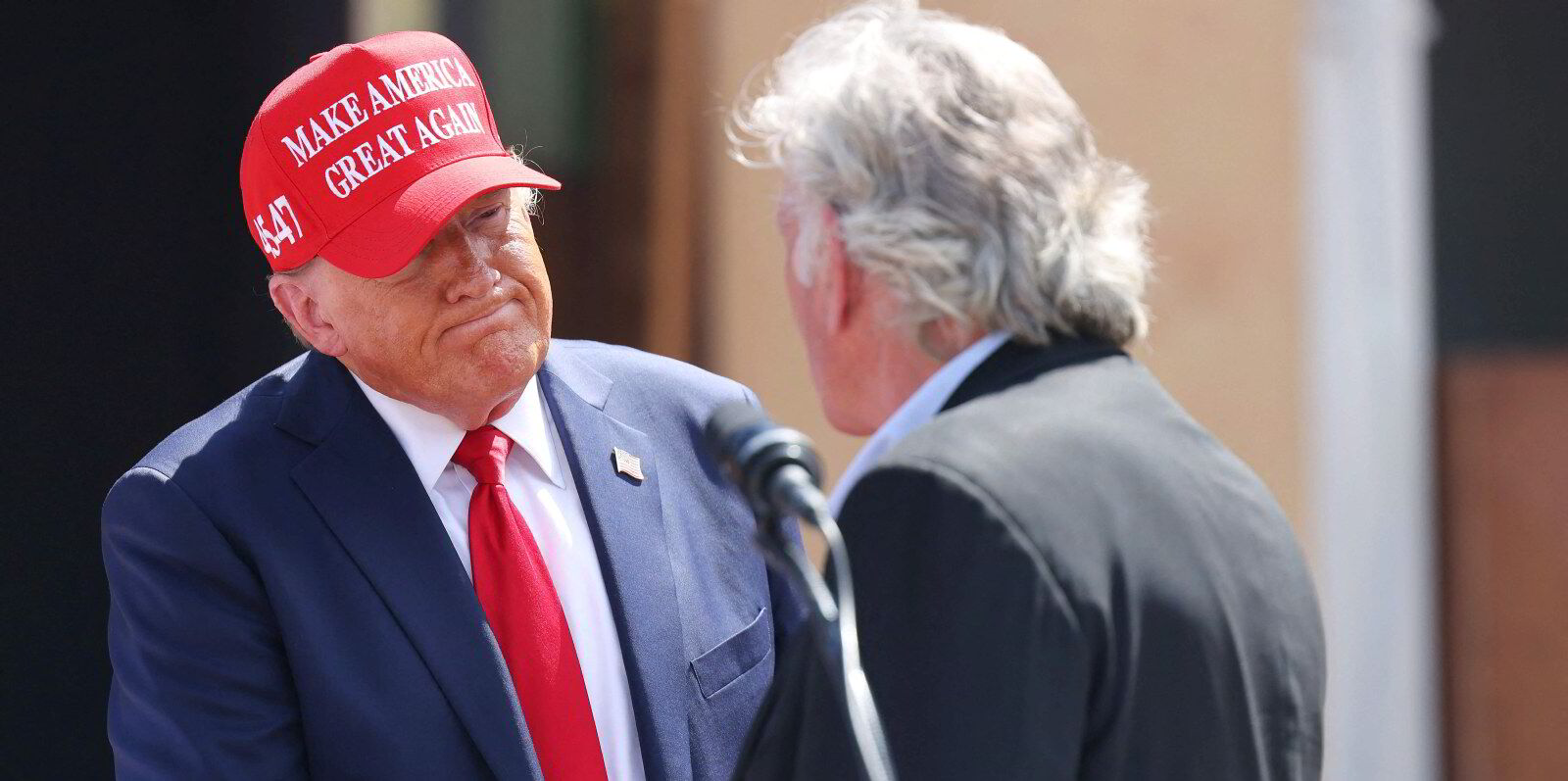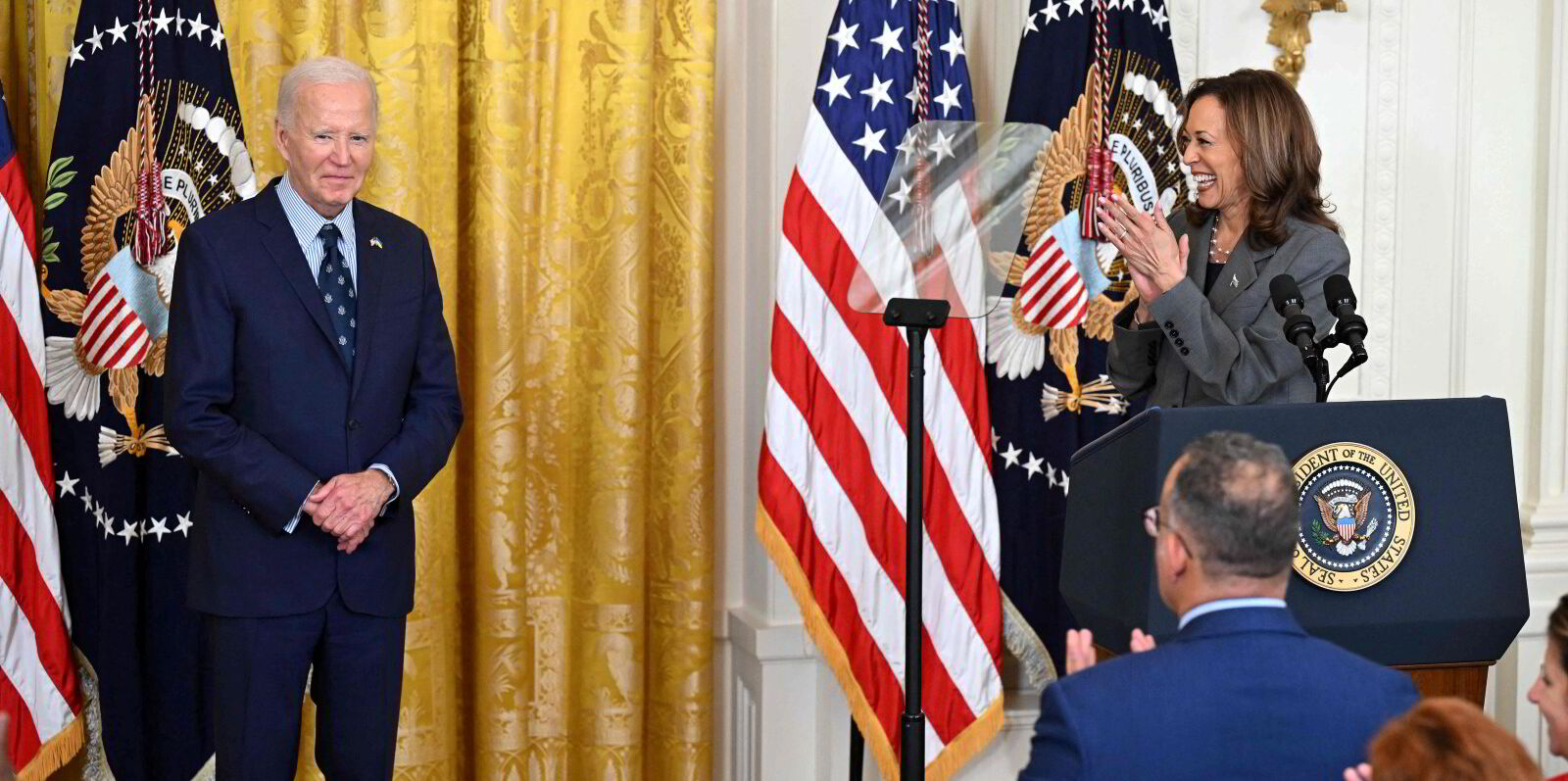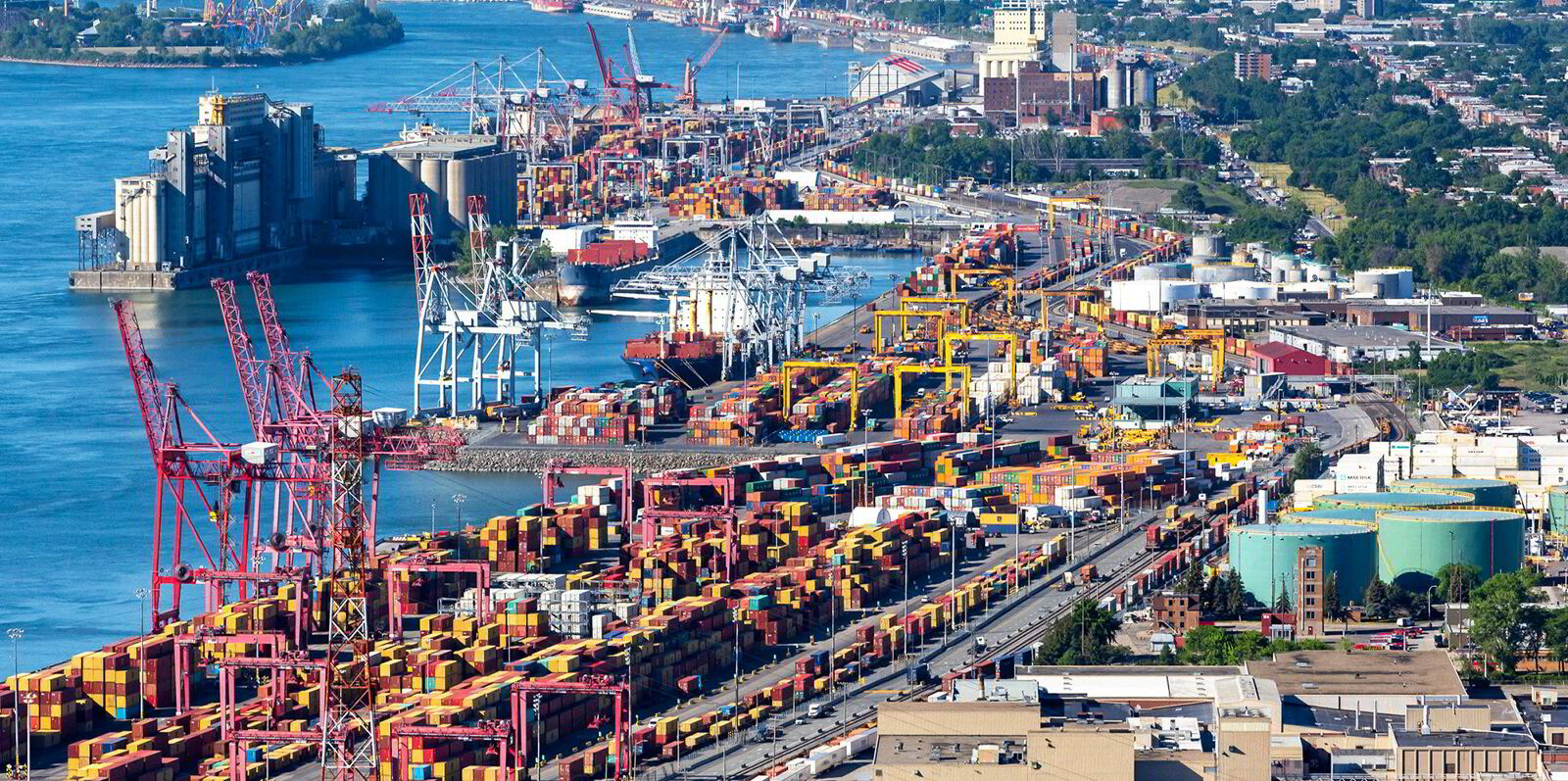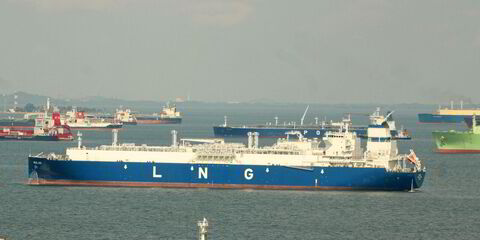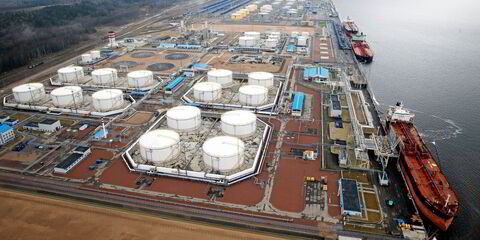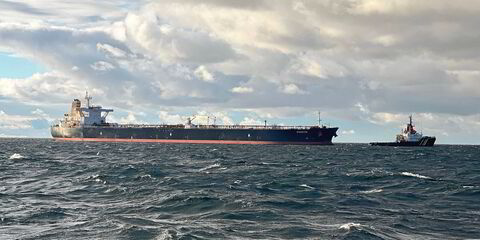One man has been the main voice of 45,000 dockworkers who have shut down containers and vehicle ports across nearly 7,500 km of coastline.
He has led the historic strike with a combative, expletive-laden approach that has challenged the traditional connection between labour and US politics.
And he put the power of unions back into the spotlight after their membership roles had been on the ropes for decades.
But who is the International Longshoremen’s Association president who has brought terminals from Maine to Texas to a screeching halt?
This brief biography of Harold Daggett was drawn from media reports and his bio on the ILA website.
An ILA spokesman did not respond to a request for comment for this article and has previously declined an interview request.
Born in New York’s West Greenwich Village and raised in Queens, Daggett studied at Cardinal Farley Military Academy before serving in the US Navy in the Vietnam War.
After his honourable discharge, he started working on the docks in 1967 as a mechanic.
Daggett, 78, is a union man practically by genetics — the third generation of at least four in the ILA.
His father, Harold Daggett Sr, worked in the ILA for 57 years, while his son, Dennis, is the union’s executive vice president.
He spent 11 years working with Sea-Land Services, the shipping line created by containerisation pioneer Malcolm McClean, which was later acquired by AP Moller-Maersk.
Rising through the ranks
Then in 1980, he jumped full-time into the union, becoming secretary-treasurer and business agent for ILA Local 1804-1 and began climbing the ranks.
The latest fight is not his first rodeo.

He was a wage scale delegate for the union in the 1970s when the union was pushing back against containerisation.
The union leader played a role in the last strike to shut down the US East Coast and Gulf Coast in 1977. He flew out to the US West Coast to help prevent diverted ships from docking there, according to the Wall Street Journal.
In an interview posted on the ILA’s YouTube account, Daggett recalled the union in his father’s day going on strike for a wage increase of as little as 25 cents per hour.
“We went on strike in 1977 for 80 cents,” he said. “Back then the companies were lucky if they made millions of dollars — $10m, $5m. Today, they make billions and billions of dollars.”
Daggett also faced battles on another front — when the US Justice Department accused him of being an associate of the Genovese mafia family.
After a trial in which he defended himself as a victim of the mob, he was acquitted in 2005 of charges of extortion conspiracy, as well as mail and wire fraud conspiracy.
“What doorway do I have to go through to get my reputation back?” he said as he left the courthouse, according to various media organisations.
One of his co-defendants, alleged mob member Lawrence Ricci, was less lucky. His body was found weeks after the trial in the trunk of a car at a restaurant in New Jersey, according to Newsweek.
New reputation
Dagget’s reputation is certainly different now.
The union stalwart became international president of the ILA in July 2011, representing all 85,000 of its members, before he was re-elected last year.
In addition to the dockworkers on the US East Coast and Gulf Coast ports, the union’s members include port-area workers in the Great Lakes, Puerto Rico, the US river system and parts of eastern Canada.
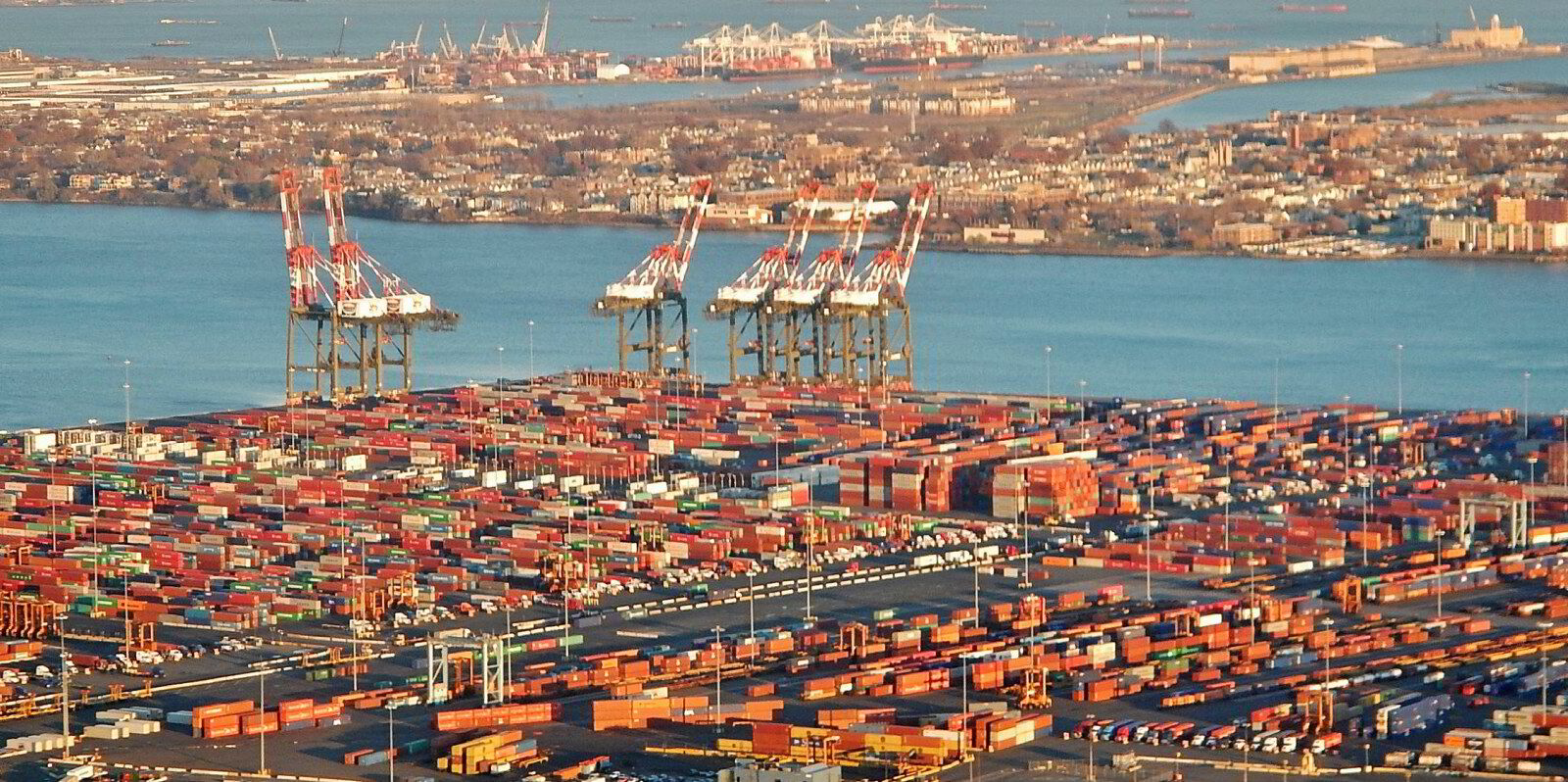
The union says on its website: “Mr Daggett serves as chief negotiator for ILA members and has successfully negotiated two landmark six-year agreements with United States Maritime Alliance and is credited with bringing increased employment and stability for his ILA members, and growth for the industry at all ILA ports.”
Well before leading the union to strike, Daggett shook up the traditional politics of unions.
Democrats have traditionally been the party of labour, and President Joe Biden has sought to be the most pro-union president in American history.
But Daggett has openly courted Republican former president Donald Trump, who has sought the support of unions even though his party has traditionally opposed union power.
After Trump survived an assassination attempt in July, Daggett recalled a November meeting with the former president at his Florida home.
“We had a wonderful, productive 90-minute meeting where I expressed to President Trump the threat of automation to American workers,” Daggett said.
“President Trump promised to support the ILA in its opposition to automated terminals in the US.
“Mr Trump also listened to my concerns about Federal ‘right to work’ laws which undermine unions and their ability to represent and fight for its membership.”
No endorsement
The ILA has not endorsed either Trump or vice president Kamala Harris in the November election, and both Biden and the Republican former president have expressed support for the union’s cause against the US Maritime Alliance.
Daggett has taken a take-no-prisoners stance in his demands for a 77% pay hike and protections against port automation, warning that the union was willing to “cripple” the economy to achieve that goal. Employers have offered a 50% increase, but it was not enough to forestall a strike.
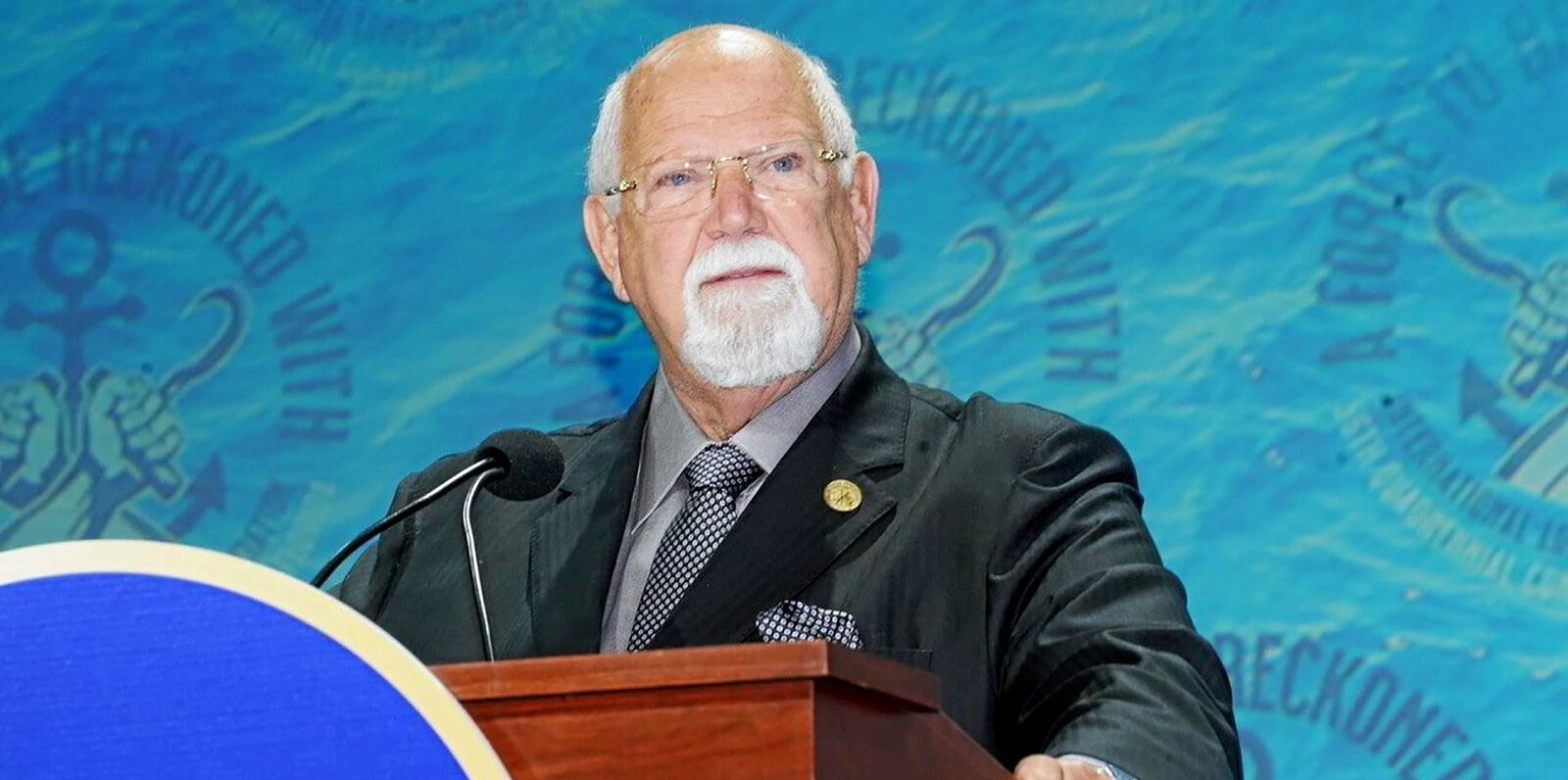
Asked by a CNN reporter about whether he was worried that the strike would hurt Americans, the union leader made it clear that the pain would get the country’s attention.
“Now you start to realise who the longshoremen are, right?” he said on the picket line.
“People never gave a s__t about us until now, when they finally realised that the chain is being broke now. Cars won’t come in. Food won’t come in. Clothing won’t come in.
“You know how many people depend on our jobs. Half the world.”
On Tuesday, he suggested the ILA is ready for a long fight, according to the Wall Street Journal.
“I don’t have a f—ing crystal ball between my legs, but it will last very long, I would tell you that,” Daggett said.
